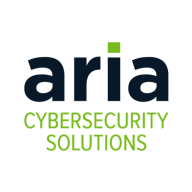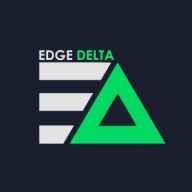

Edge Delta and ARIA ADR compete in operational data analytics and security incident response. Edge Delta shows advantages in feature set and ease of deployment, while ARIA ADR is superior in security capabilities and overall value proposition.
Features: Edge Delta provides real-time analytics, automated incident detection, and handles large data volumes efficiently. ARIA ADR offers strong security features, advanced threat detection, and automated response capabilities. Edge Delta focuses on operational insights, whereas ARIA ADR emphasizes security intelligence.
Ease of Deployment and Customer Service: Edge Delta’s cloud-native deployment offers flexibility and scalability, making it easy to integrate without causing downtime. ARIA ADR provides a more configured approach, assisting clients with dedicated support during deployment. Both offer customer service, but ARIA ADR’s hands-on support caters to those seeking detailed deployment assistance.
Pricing and ROI: Edge Delta presents a cost-effective solution with lower initial setup costs and faster ROI, thanks to its transparent pricing. ARIA ADR involves higher setup costs yet justifies them through superior threat detection capabilities, delivering substantial long-term security returns. Edge Delta stands out for affordability, while ARIA ADR focuses on security-driven ROI.
ARIA Advanced Detection and Response (ADR) is used for real-time threat detection and proactive response, identifying potential security breaches and mitigating risks through automated actions.
ARIA Advanced Detection and Response (ADR) enhances security posture with advanced analytics and threat intelligence. It provides comprehensive visibility into network activities and helps manage incidents with robust investigative tools. Suitable for various IT infrastructure environments, ADR efficiently streamlines cyber defense.
What are the key features of ARIA ADR?ARIA ADR is implemented across industries like finance, healthcare, and manufacturing, where real-time threat detection and automated response are crucial. These sectors benefit from increased security, streamlined incident management, and comprehensive network visibility.
Edge Delta offers a modern approach to observability and data analytics, leveraging distributed intelligence for more effective insights and alerting systems.
Edge Delta is designed to transform how users manage observability workloads by distributing data processing closer to the data source, reducing latency and increasing efficiency. This approach enables real-time analytics, providing immediate insights and anomaly detection. Its architecture allows for scalable data processing, making it adaptable to numerous environments. Users benefit from its capability to handle massive data streams efficiently while maintaining a high level of accuracy in analytics.
What are Edge Delta's key features?
What benefits should users expect?
Edge Delta's implementation spans industries like finance, where real-time data monitoring is crucial for risk management. In retail, it supports large-scale data processing for customer insights, while in technology sectors, it assists in maintaining high availability and performance of critical systems.
We monitor all Security Information and Event Management (SIEM) reviews to prevent fraudulent reviews and keep review quality high. We do not post reviews by company employees or direct competitors. We validate each review for authenticity via cross-reference with LinkedIn, and personal follow-up with the reviewer when necessary.